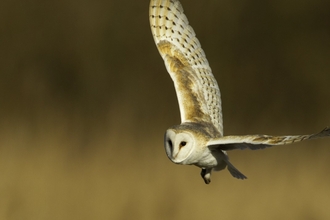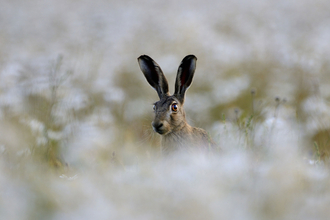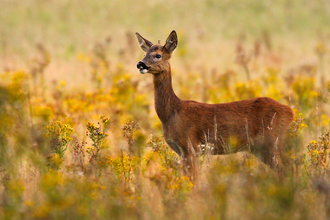Seven simple steps to making a Will
The thought of making a Will may seem daunting, but it's easier than you think.
Follow our guide to learn how to write a Will and ensure your assets go to the people and causes you care about.
1. Value your estate
Before you speak to a solicitor or professional Will writer, you'll need a rough idea of the value of your estate (your assets). At this stage you'll only need an estimate, don’t try and work out the exact value of everything you own.
Place a rough value on the following assets:
- Property
- Car
- Savings
- Personal possessions, including sentimental objects
- Your pension
- Any investments
- Your business (if applicable)
Digital assets
Don't forget your digital financial assets - these could include online bank and savings accounts, subscriptions, digital games, music or film collections, email accounts and even digital assets with emotional value such as Facebook accounts or online photo albums.
Debts
You also need to provide details of any existing debts. These might include mortgages, loans and overdrafts. Again, this doesn’t have to be a precise figures.
2. Choose your Will-writing method
Types of Will include Single Wills, Mirror (joint) Wills and Living Wills (for medical treatment should you be unable to express your intent), all of which serve slightly different purposes. Mirror and living Wills will also typically be more expensive.
Write a Simple Will for free
Surrey Wildlife Trust supporters can make a Simple Will for free with one of our Trusted partners, with no obligations whatsoever*.
*If you have complex requirements such as significant or multiple assets, businesses and/or trusts, you may need to seek additional professional advice.
Will-writing providers
Will-writing services are also available through dedicated Will writers, most solicitors and some banks. Online Will-writing services are also available.
For more information on the cost of writing a Will, please see below.
3. Decide how to distribute your estate
Next, decide what you want to happen to your assets, including who should be included in your Will and details of any gifts you wish to make.
Gifts include anything you own. They could be specific items, cash amounts, or a percentage of your estate. You can also dictate the age at which beneficiaries receive a gift or share of your estate. You can also name family and friends who you wish to receive personal and sentimental items.
4. Consider remembering a charity in your Will
After you’ve taken care of your loved ones, you may wish to leave a gift to the charities you support. Donations can be of any size, small or large.
To make a donation to charity, you'll need to provide the charity name, address and registered charity number to your professional advisor. If you are considering leaving a gift in your Will to Surrey Wildlife Trust, please use the following details:
- Registered name: Surrey Wildlife Trust
- Registered address: School Lane, Pirbright, Woking, GU24 0JN
- Registered charity number: 208123
Please do contact us if you have included a gift to Surrey Wildlife Trust in your Will.
Residual gifts
Many people choose to support us by leaving a percentage, or ‘residual gift’, of whatever is left from their estate once everything else is paid out.
This allows them to ensure their loved ones are looked after first and foremost. A residual gift also keeps pace with inflation. Even 1% of your estate can be a significant gift.
5. Name your executors and guardians
Executors
The next step is to choose an executor – the person who will deal with your estate in the event of your death. Ideally, this should be trusted family member or friend, or a professional advisor.
If you don't name an executor in your Will, or die without a valid Will, one will be appointed by a probate court. They will usually ask a close family member, but they will have to accept the role.
No one is legally obliged to be an executor for a Will. They will have to accept the responsibility if they feel confident they can carry out the required duties.
These include the collecting and inventory of all your estate’s assets, the payment of outstanding debts to any creditors and the distribution of any remaining assets according to the terms set out in your Will.
Guardians
You may also need to choose suitable legal guardians for your children under the age of 18 - guardians are usually close family members. If you die without a Will or without appointing a guardian, and you do not have a spouse with parental responsibility, the courts will decide what’s best for your children.
6. Make sure your Will is legally valid
Your Will must signed and witnessed correctly to be legally valid. The law states that for your Will to be legally valid, you must:
- Be 18 or over
- Make it voluntarily
- Be of sound mind
- Make it in writing
- Sign it in the presence of two witnesses who are both over 18
- Have it signed by your two witnesses, in your presence
Signing and witnessing your Will
When a signature is being witnessed:
- The witness must see the document being signed
- The Will-maker (or person authorised to sign on their behalf) and witnesses must sign the same document
Any future changes you make to your Will must also be signed and witnessed in the same way. You also can’t leave anything in your Will to any of your witnesses or their married partners.
7. Store your Will safely
Once your Will is written and signed, you need to keep it somewhere safe for your executor to find and carry out your wishes.
Where to store your Will:
- Most solicitors and professional Will-writers will store your Will for you. Some banks may offer a Will storage service for a fee.
- You can store your Will with HM Courts & Tribunals Service for £20.
- You can store it somewhere safe and register its location with the National Will register
How much does it cost to write a Will?
The cost of writing a Will will depend on the type and complexity of the Will you’re looking to write and the service provider you use.
Surrey Wildlife Trust supporters can make a simple Will for free with one of our trusted partners, with no obligations whatsoever.
A Simple Will for one person can be written for free using some online Will-making services, but expect to pay anything from £80 to £500+ for more complex arrangements and/or high value assets.
Anyone with significant or multiple assets and/or trusts should expect to pay a minimum of £500 for their Will.
What will your legacy be?
Learn more about leaving a gift in your Will to Surrey Wildlife Trust.
Please keep in touch
We would love to hear from you. If you wish to discuss making a gift, please reach out to us at 01483 663297 or email fundraising@surreywt.org.uk. Alternatively, you can complete the below form to submit an enquiry, or to let us know about leaving a gift in your Will.




